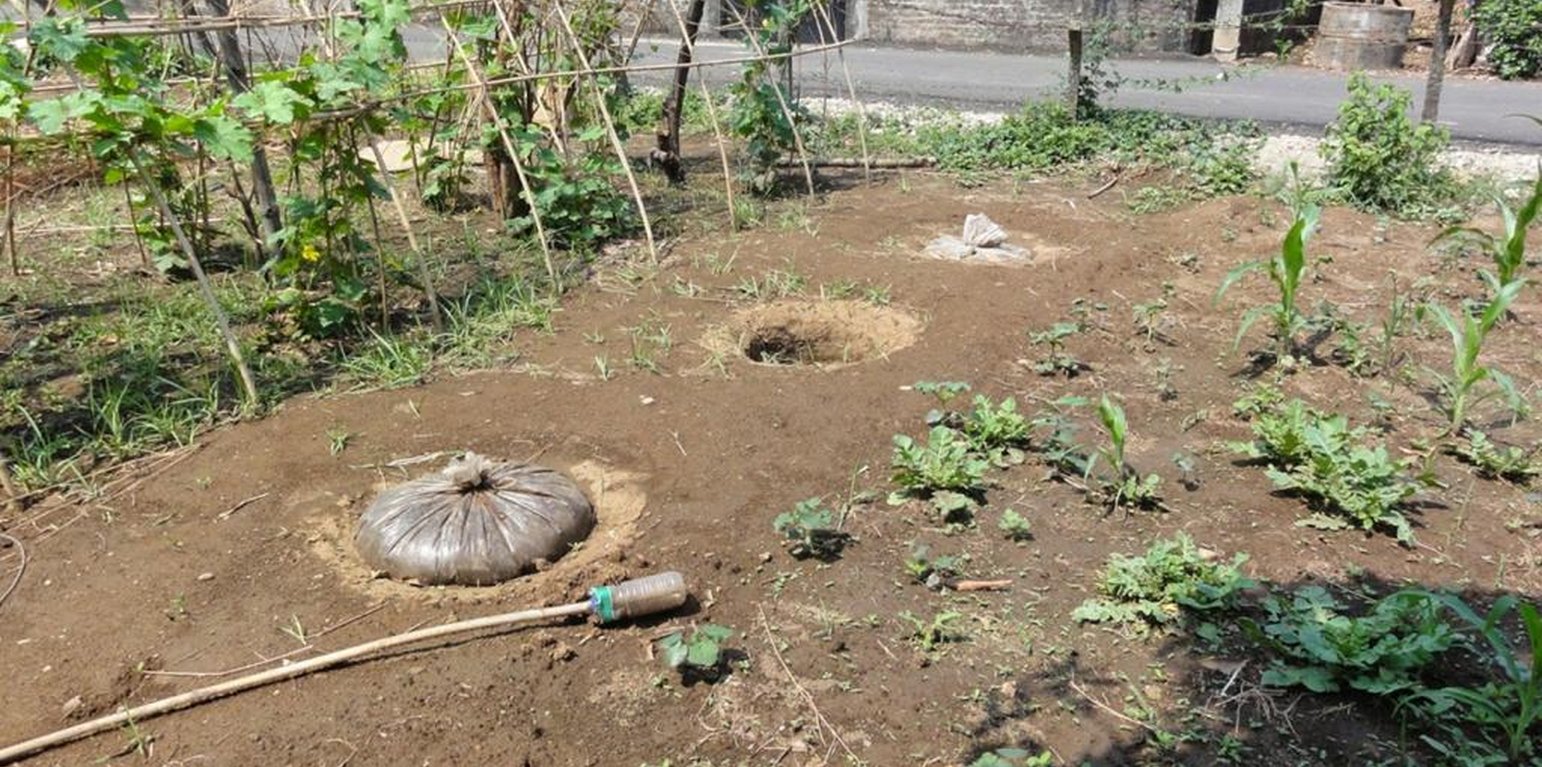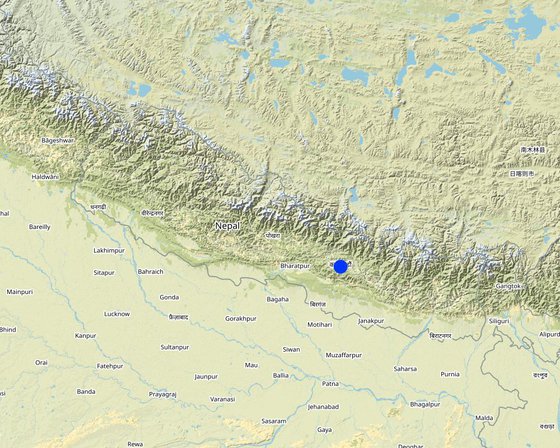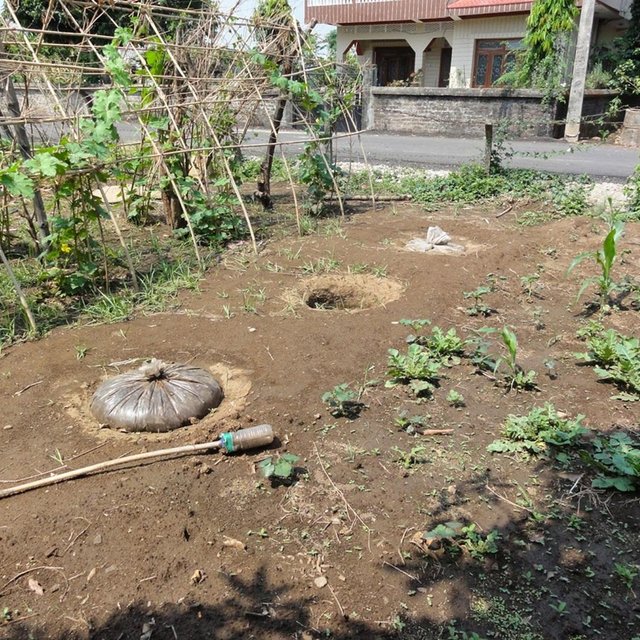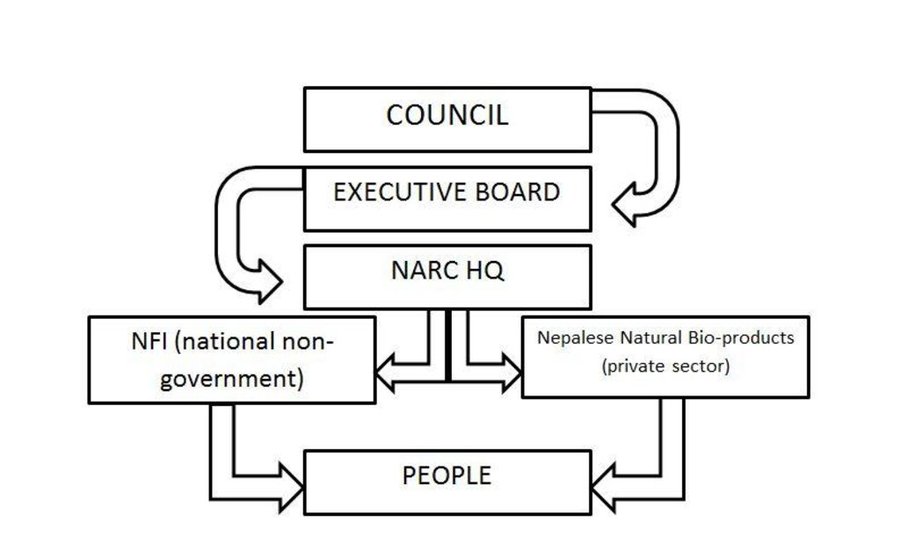



Aims / objectives: The use of Jeevatu has been and still is solely for agricultural purpose. The main objective of it is to effectively free the environment different poisonous chemicals that are present in the form of pesticides and fertilizers.
It aims to prevent and control pests and diseases, including bacterial, viral and fungal, in vegetables, cereals, flowers and fruit trees, and to improve the growth of the plant, the yield and the quality of the fruits (vitamin content and peel thickness).
It can also be used to keep different fruits and vegetables fresh for a longer period of time.
Jeevatu further helps by promoting the proper management of the waste materials as the key ingredient in the process of producing Jeevatu is different organic wastes.
It provides an advantage to the farmers by an economic point of view as well - the cost of Jeevatu is comparatively much less than that of other pesticides and fertilizers.
Methods: A 2 feet wide and 1 foot long pit is dug in a fertile land.
A plastic sheet is placed in the pit
Raw cow dung and water is poured in the pit and made greasy
The 1m25cm plastic sheet is then made air and water tight by tying it up with a jute rope
Every 2-3 days water is added and the mixture is stirred well
The water added amounts up to about 50L.
After 17-25 days , a green colour is seen in the outer surface of the plastic bag and the odor is no longer present, this indicates that the fertilizer (Jeevatu) is now ready to be used.
The plastic bag is then removed and a new plastic sheet is placed to start the production of a new batch of Jeevatu
1L of the previous made Jeevatu is also included to after the second batch to gain a better yield of Jeevatu.
Role of stakeholders: There are mainly two types
The producers-
They seek profit in terms of money as they plan to produce good amounts of Jeevatu and sell them to the people involved in agriculture or animal husbandry
The people involved in agriculture and animal husbandry-
They seek profit in terms of good yield of crops or animal products. The use of Jeevatu benefits them and keeps them as well as the environment safe.

Localização: Lalitpur, Nepal, Nepal
Data de início: n.a.
Ano de término: n.a.
Tipo de abordagem
| Que partes interessadas/órgãos de implementação estavam envolvidos na abordagem? | Especifique as partes interessadas | Descreva o papel das partes interessadas |
| Usuários de terra/comunidades locais | Farmers like Kalpana KC of Emadole, Lubu | Mainly used by farmers to enhance the crop productivity and its protection. Comparatively more economically disadvantaged groups were involved than socially disadvantaged ones. This is due to the cheap price of Jeevatu, i.e. only Rs.100 per bottle. Jeevatu being cheaper than other chemicals enabled the people of different economic groups to have better agricultural products. |
| Organizações comunitárias | People involved in agricultural works and animal husbandry | |
| Especialistas em GST/ consultor agrícola | ||
| Organização não governamental | Nepalese Farming Institutes | |
| Setor privado | Nepalese Natural Bioproducts & different nurseries | |
| Governo nacional (planejadores, responsáveis pelas decisões) | NARC |
The flowchart shows how Jeevatu is made avaiable to the people.
Jeevatu was first made in NARQ HQ, the production was further continued by non governmental organizations such as NFI.
Different private sectors are also involved in funding of Jeevatu production.
The local people or farmers can get access to Jeevatu through these non governmental organizations and private sectors

As decisões foram tomadas por
As decisões foram tomadas com base em
The people who received trainings and had gained awareness involved those related to agriculture or animal husbandry.
They were told about the benefits of Jeevatu over the other chemicals and other important facts about how the chemicals cause harm to our bodies and the environment were also mentioned.
Research was carried out on-farm
People, after the approach, acquired different information regarding the harms due to the extensive use of chemical pesticides and fertilizers and also learnt how Jeevatu had a significant advantage over them. It resulted in reduction of the use of those harmful chemicals and hence greatly promoted sustainable land management.
Jeevatu is available for just Rs.100 per bottle. This enabled the economically disadvantaged groups to take active part in using Jeevatu, increasing their agriculture yield and hence contribute to sustainable land management.
there was no hindrance. The problem is likely to be overcome in the near future. approach creates a framework to use in the future.
Nearby local communities also adopted Jeevatu as the message was transferred through the local people.